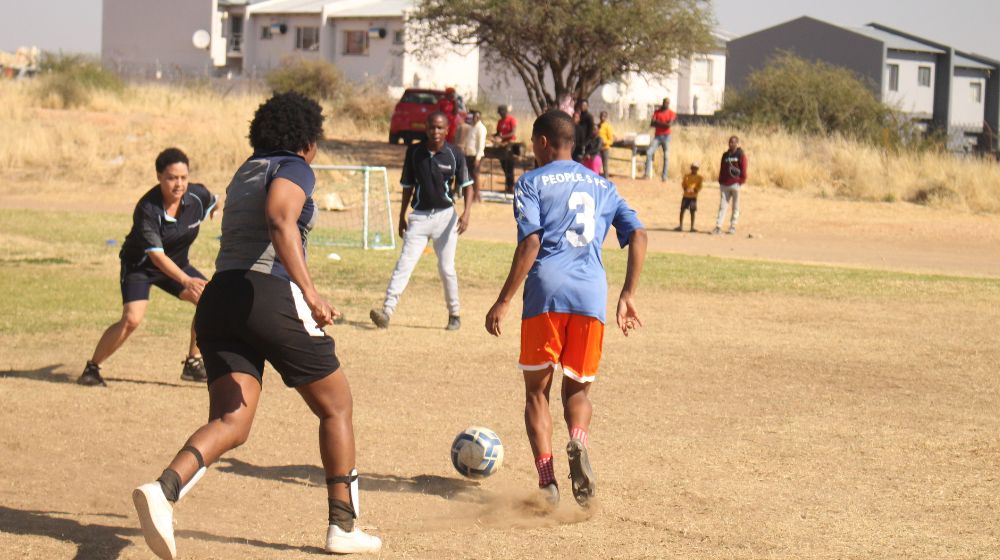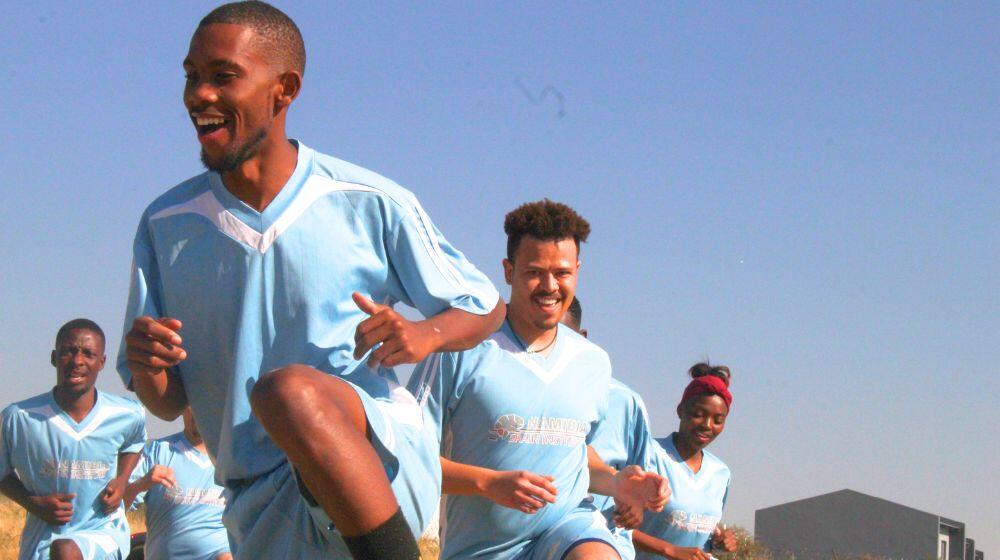
WINDHOEK, Namibia - “Drugs have long-term consequences. I have seen classmates end up on the streets and that is not a life you are meant to live”.
“These things do not come at a cheap price”, warned gynaecologist Dr David Emvula at the third #BeFreeBallers soccer tournament on 24 June 2022.
While excitement and a strong competitive spirit unmistakably filled the air, the cautionary tone of Dr Emvula’s words was just one indication that the #BeFree Ballers was unlike any regular soccer tournament.
It provided an innovative platform for speakers such as Dr Emvula, professional boxer Jeremiah Nakathila, professional soccer player Thomalina Adams, and Deputy Minister of Sports, Youth and National Services Hon. Emma Kantame-Gaomas to engage men on how to healthily navigate and positively contribute to society through discussing drugs; alcohol; mental health; gender-based violence (GBV) and sexual reproductive health (SRH).
Young men were encouraged to embrace discipline, hard work and look after their physical and mental well-being if they are to fulfil their highest potential.
Dr Emvula shed light on the potential consequences of substance use and not taking care of their sexual reproductive health, stating, “If you are drunk, you might end up engaging in unprotected sexual intercourse which can cause teenage pregnancy, sexually transmitted infections such as HIV”.
With more than 100 men in attendance on the day, the tournament increased its reach to build positive masculinities and initiate critical dialogues among men about mental health, GBV and SRH by using one of Namibia’s favourite past-times – soccer.
Organised by the #BeFree Movement, with support from the Japanese Government and UNFPA, the #BeFree Ballers tournament comes at a pivotal time for men’s mental health in the country.
The World Health Organisation (WHO) indicates that Africa has the highest suicide rate in the world, with the suicide rate for men highest at 18 per 100,000 people. In particular, Namibia has one of the highest suicide rates in the Southern African Development Community (SADC) region.
“Most people think that mental health is a ‘white people’ thing. I feel like black people do not take it as mental health, we take it as witchcraft, but mental health is very important, especially in this age where everybody has gone through so much with COVID-19”, said Desmund Swartz, an attendee at the #BeFree Baller tournament.
The detrimental impact of poor mental health and mental health disorders on the development, social integration, employability, and relationships of young individuals cannot be overstated.
“Doing sports can only make you a better person.”
Sports, as exemplified by the tournament, hold great potential for improving and safeguarding mental health by fostering socialisation and engagement that can lead to positive outcomes, not the least of which is potentially becoming a professional athlete.
“Sport can keep you busy, and you would not even have time to do other wrong things. All your time will be reserved for better and good things”, urged professional boxer Jeremiah Nakathila.
“Doing sports can only make you a better person”, added Nakathila.
This year was the first time women have been included in the male-targeted #BeFree Ballers tournament with AC Ballers taking home the title on the day.
Male engagement, mental health, and psycho-social support are key components of the Leaving No One Behind Project in Namibia. Funded by the Japanese Government, the project's primary goals are to restore dignity, reshape the future, and address GBV and negative sexual and reproductive health outcomes for women, girls, men, and boys in Namibia.


